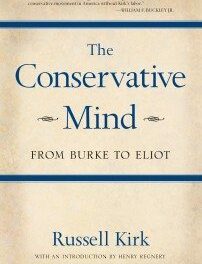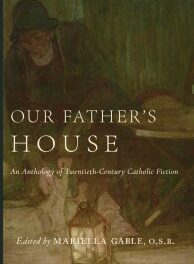We support our Publishers and Content Creators. You can view this story on their website by CLICKING HERE.
 Christmas, it is said, is “too commercial,” an affair of buying and selling, deals and exchanges. It is all about gifts. It is all about materialism. It should be more spiritual! Call me a bad Catholic, but I have never quite been able to get into the spirit of this sentiment. Christmas will ever be a season of focusing on gifts, deals, exchanges, and material stuff because it is a celebration of the greatest deal ever made. This deal is fully spiritual because it involves material stuff and a trade that is meant to change the way we think about our entire life.
Christmas, it is said, is “too commercial,” an affair of buying and selling, deals and exchanges. It is all about gifts. It is all about materialism. It should be more spiritual! Call me a bad Catholic, but I have never quite been able to get into the spirit of this sentiment. Christmas will ever be a season of focusing on gifts, deals, exchanges, and material stuff because it is a celebration of the greatest deal ever made. This deal is fully spiritual because it involves material stuff and a trade that is meant to change the way we think about our entire life.
What is this deal? It is this: that God took up our human nature so that we can take up the divine nature. In the liturgy, this is known as the admirabile commercium—the “admirable exchange”! Or sometimes “the holy exchange,” as we see it in the preface to the Mass on the Octave of Christmas, also known as the Circumcision of the Lord.
For through him the holy exchange that restores our life
has shone forth today in splendor:
when our frailty is assumed by your Word
not only does human mortality receive unending honor
but by this wondrous union we, too, are made eternal.
We don’t simply wait for a child—even a royal child—at Christmas. We await the long-expected savior of the nations, the Son of David promised from of old who is also Son of God and “the image of the invisible God, the first-born of all creation,” the one in whom “all things were created, in heaven and on earth, visible and invisible, whether thrones or dominions or principalities or authorities—all things were created through him and for him” (I Cor. 1:15-16).
Is this a great deal for God? Why would the Eternal Son—spiritual, immutable, omnipotent, eternal—take on a life that is material, changeable, weak, and mortal? He who made us wants us to share in his own divine life. And our gift to him is what? A chance to share in a life that is often full of difficulty? Holy Scripture testifies, “Man is born to trouble, as the sparks fly upward” (Job 5:7). God’s trade is this? It makes no sense to the natural mind. After all, if God lacks nothing in his own happiness, we cannot add anything to his happiness by sharing in his life. The only answer to this is that because God is the fullness of love, his action can only be because of his desire to share what He has with us.
God has no need of us. God simply and truly loves us. While the word “admirable” today means “excellent” or “deserving the highest esteem” (certainly appropriate here), this deal is admirable in the old sense: it excites wonder. If we do not ask how this can be, perhaps we have not fully thought about how strange God’s love is.
Not only does the exchange excite wonder at the nature of God’s perfect and endless love. It excites wonder in the mystery of how that love is shown. The invisible God makes himself visible in weakness and ordinariness. “Let us contemplate this Infant lying in the manger,” writes the twentieth-century Benedictine Abbot, Blessed Columba Marmion. “His eyes are closed, He sleeps, He does not manifest outwardly what He is. In appearance, He is only like all other infants, and yet, being God, being the Eternal Word, He, at this moment, is judging the souls before Him.”
The Judge of the Nations, the Word, is now an infant—a word from the Latin infans, “not speaking.” The one who is God’s right hand becomes smallness and weakness itself. Chesterton observes, “The hands that had made the sun and stars were too small to reach the huge heads of the cattle.” Blessed Marmion interprets this strange sign: “The Babe in the Crib seems to say to us: ‘You are afraid of God? You are wrong…. The true Almighty God is the God that I am and reveal; the true God is I Who come to you in poverty, humility and infancy, but Who will one day give My life for you.’”
The rule of reason is that if a deal sounds too good to be true, it is. But the rule of faith is that if God has revealed it, it is true. Further, its truth is more certain than anything we can come up with on our own through that reason. Further still, if it is true, then it means that how we think about the human race must change.
Christ came into a world darkened by sin, a world in which children were often needed but not loved. As such, they were considered dispensable by the world. Children were sacrificed to the gods or simply abandoned or destroyed if they were not needed or not useful. The inconvenient, weak, or disabled child could be killed in the womb or out of the womb. Christ’s deal confirmed that man—every man, woman, and child—is an image of God who is called to the glory of sharing in that divine life. No more can we see any human being, not even the smallest or weakest of our race, as without potential or simply disposable.
Our world, too, is darkened by sin and needs this light. In his book Jesus, the convert journalist Malcolm Muggeridge recalled being with Mother Teresa once when she “picked up one of the so-called ‘unwanted’ babies” whom her sisters had “salvaged from a dustbin.” When Muggeridge commented on how it was “so minute that one wondered if it could exist at all,” the saint’s face turned to “a look of exultation.” “‘See,’ she said, ‘there’s life in it!’ So there was; and suddenly it was as though I were present at the Bethlehem birth, and the baby Mother Teresa was holding another Lamb of God sent into the world to lighten our darkness. How could we know? How dared we prognosticate upon what made life worth while for this or that child? How many Lambs of God may not have been carried away in buckets of hospital waste?”
The admirable exchange of Christmas is the greatest deal ever. Love and the fullness of life freely given to us. Yet this deal has a price. We too must see each other as God sees us. Large and small, old and young, weak and strong, sick and healthy—all called to a share in eternal life and glory.
Republished with gracious permission from The Catholic Servant.
The Imaginative Conservative applies the principle of appreciation to the discussion of culture and politics—we approach dialogue with magnanimity rather than with mere civility. Will you help us remain a refreshing oasis in the increasingly contentious arena of modern discourse? Please consider donating now.
The featured image is “Worship of the Shepherds” (1539) by Bronzino, and is in the public domain, courtesy of Wikimedia Commons.
Share This Story, Choose Your Platform!
Go to Top

 Conservative
Conservative  Search
Search Trending
Trending Current News
Current News 






